Everything you do boils down to impact. Whether personal or professional, you build, design and imagine in pursuit of creating lasting change for the wider world. So, how do you make it happen? At TED Salon: Impact, a virtual event presented by TED and Dell Women’s Entrepreneur Network (DWEN), four speakers and one performer explored the driving force behind the decisions and actions that move women’s entrepreneurship forward.
The event: TED Salon: Impact, presented in partnership with DWEN, hosted by TED technology curator Simone Ross and director of speaker coaching Briar Goldberg, with opening remarks from Vice President of Dell Global Field Marketing Kristen Nolte.
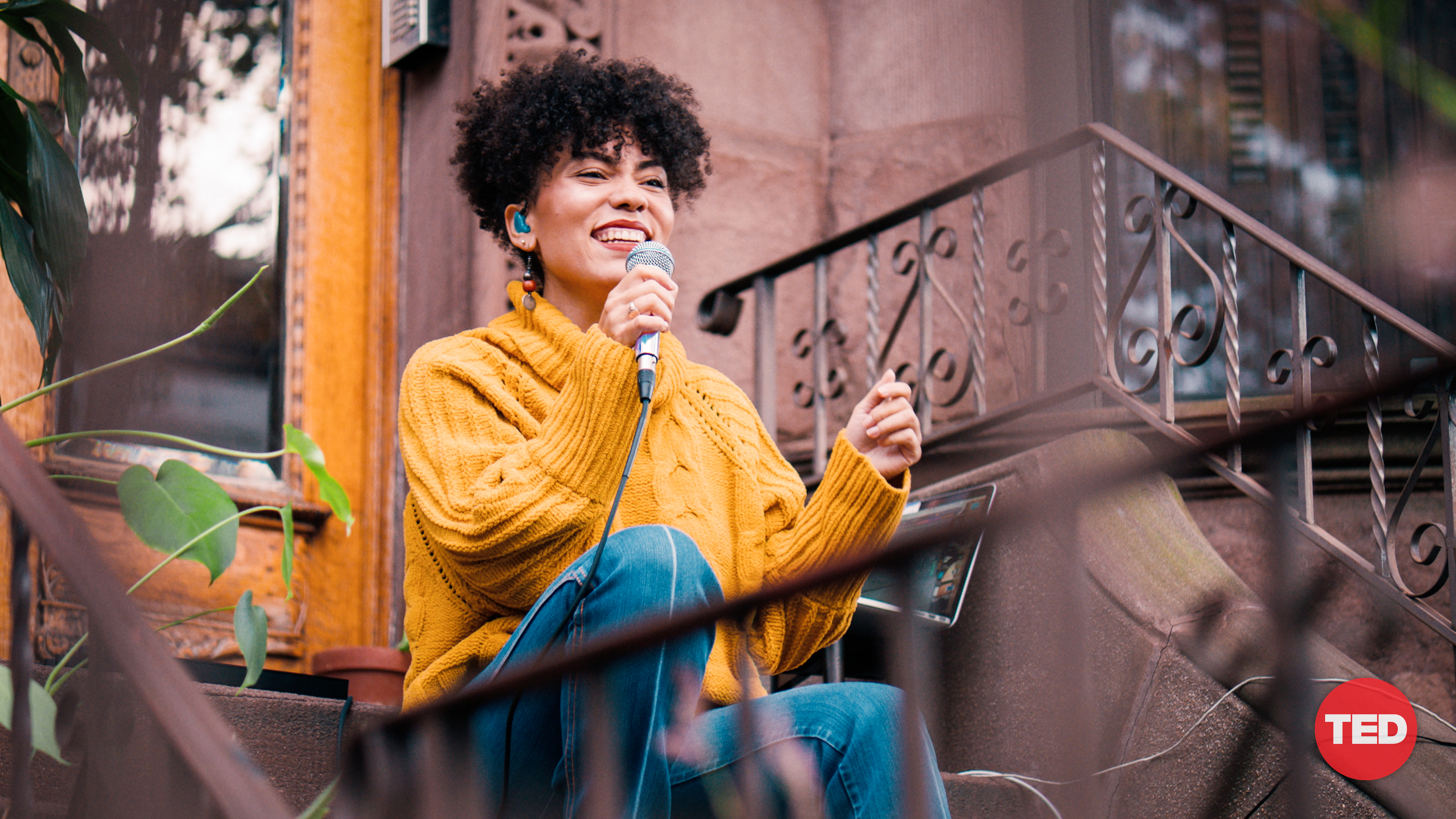
Madison McFerrin delivers a performance of her song “TRY” for the virtual audience at TED Salon: Impact on March 11, 2021. (Photo courtesy of TED)
Music: From her stoop in Brooklyn, singer-songwriter Madison McFerrin performs “TRY” — a synth-infused invitation to chase your dreams, despite what others say.
The talks in brief:
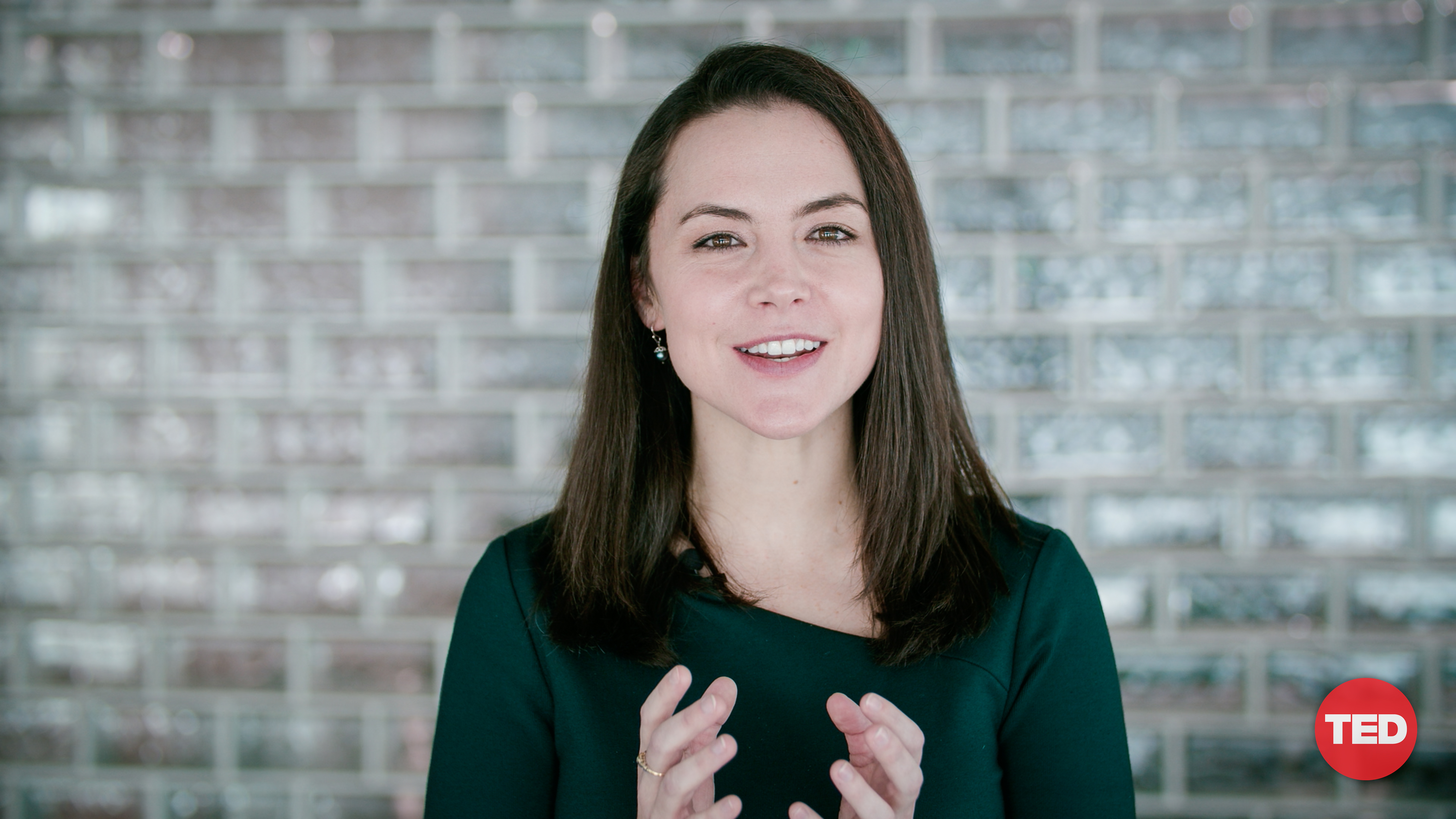
“We need to figure out how we go into conversations not looking for the victory, but the progress,” says champion debater Julia Dhar. She speaks at TED Salon: Impact on March 11, 2021. (Photo courtesy of TED)
Julia Dhar, business strategist, champion debater
Big idea: Every conversation (or disagreement) you have can be a productive one, if you approach it with curiosity.
How? As a world debate champion, Julia Dhar is no stranger to having conversations with people she disagrees with. Rather than viewing these encounters as a chance to change someone else’s mind, she instead approaches them as opportunities to find common ground and strengthen the resilience of her own point by learning from other perspectives. “We need to figure out how we go into conversations not looking for the victory, but the progress,” Dhar says. She shares three essential features of having productive disagreements: go in with curiosity; be adaptable with your idea; and focus on the common ground. The end result? Constructive conversations that sharpen your argument — not the relationship.
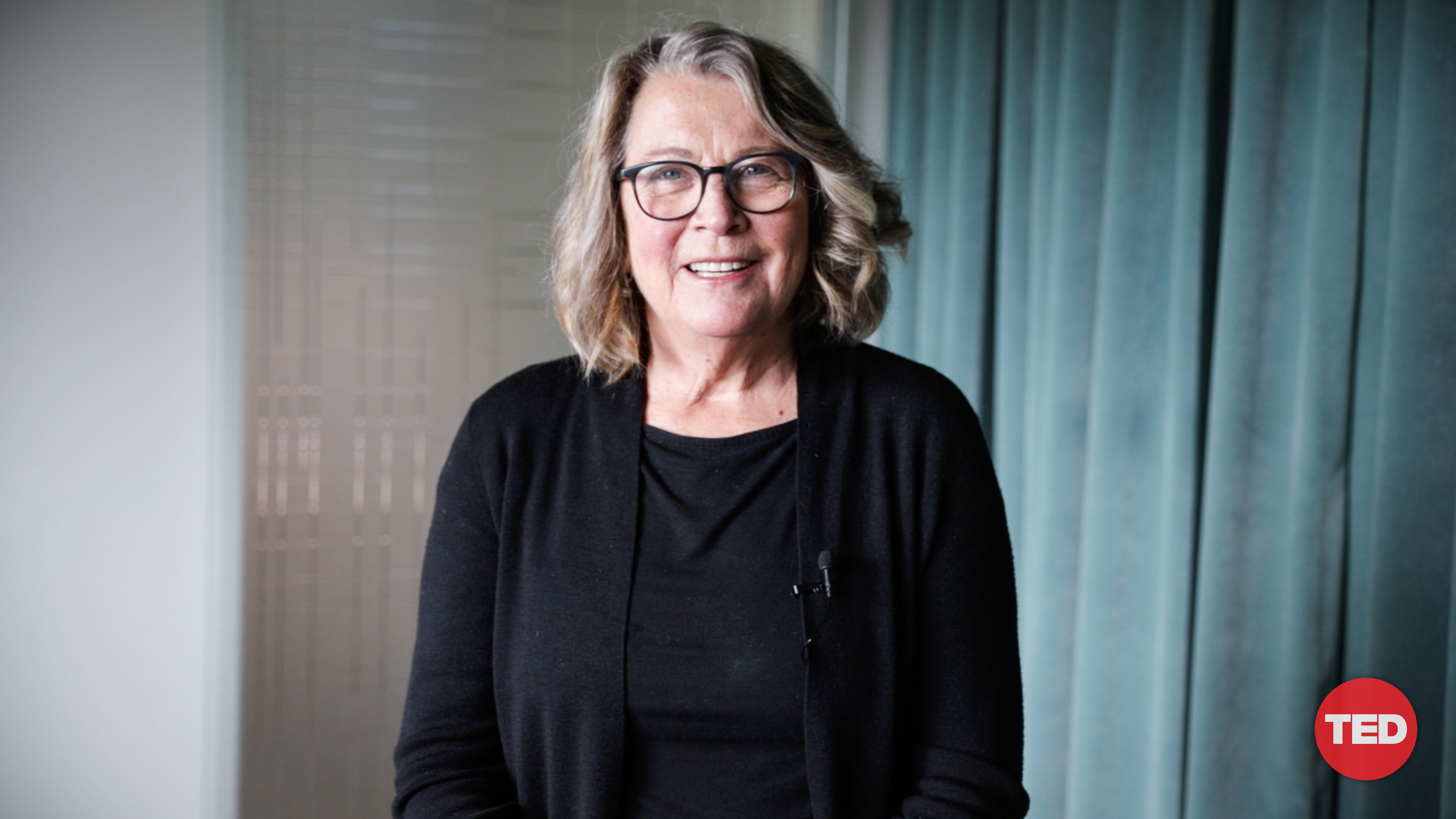
Patty McCord discusses what the pandemic changed about work — and how we can adapt. She speaks at TED Salon: Impact on March 11, 2021. (Photo courtesy of TED)
Patty McCord, consultant
Big idea: The COVID-19 pandemic taught us that, despite previous resistance, it’s possible to improve the way we work.
How? Patty McCord believes we can finally change our professional lives for the better. The COVID-19 pandemic shuttered offices and strong-armed a reliance on remote work, teaching companies important lessons about their employees and their businesses. On the one-year anniversary of the start of the coronavirus lockdown, McCord reflects on four essential learnings that have the potential to improve work-life for everyone — even after the pandemic is over. After taking Zoom calls alongside our kids at the kitchen table, we’ve learned that separating work from family life is crucial to our productivity. Additionally, bosses have gained trust in their employees working from home, allowing them to make more autonomous decisions and focus on the results that matter. Companies have thrown “best practices” out the window and begun developing better business structures. And everyone has learned the true value of clear communication, which ensures efficiency. By understanding these key learnings, we can begin to rethink all the ways we work — and create new practices that work for everyone.
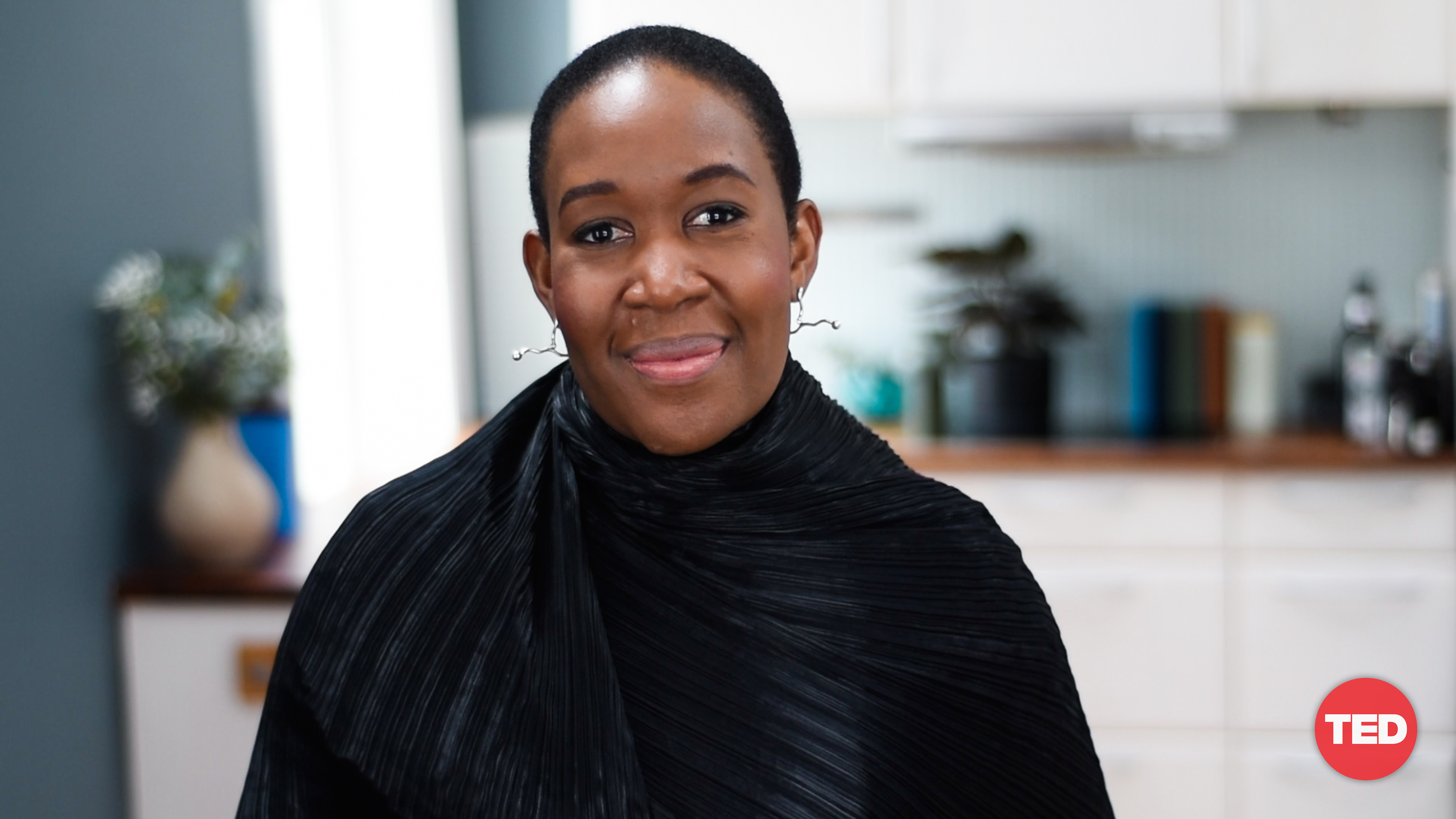
“We tend to recognize things and not the complex systems that actually produce them,” says designer Natsai Audrey Chieza. She speaks at TED Salon: Impact on March 11, 2021. (Photo courtesy of TED)
Natsai Audrey Chieza, biodesigner
Big idea: Through design, we have the power to imagine a future where people and nature can thrive together — powered by multidisciplinary, nuanced and systemic solutions.
How? When Natsai Audrey Chieza was in school, she participated in a time-capsule project where she and her friends visualized a green, equitable world. Now 20 years later, in the face of decades of global inaction, many obstacles still block our path to those imagined futures — but Chieza is still exploring how we can get there. She founded Faber Futures, an innovation lab and creative agency that brings together experts from different disciplines to explore the intersection of biology, design and technology. She shares creations that came from unexpected collaborations — between Afro-futurists and astrobiologists, food researchers and Indigenous campaigners. And she invites us to ask ourselves what kind of world we wish for — and what systemic changes and collaborations need to happen for them to exist.
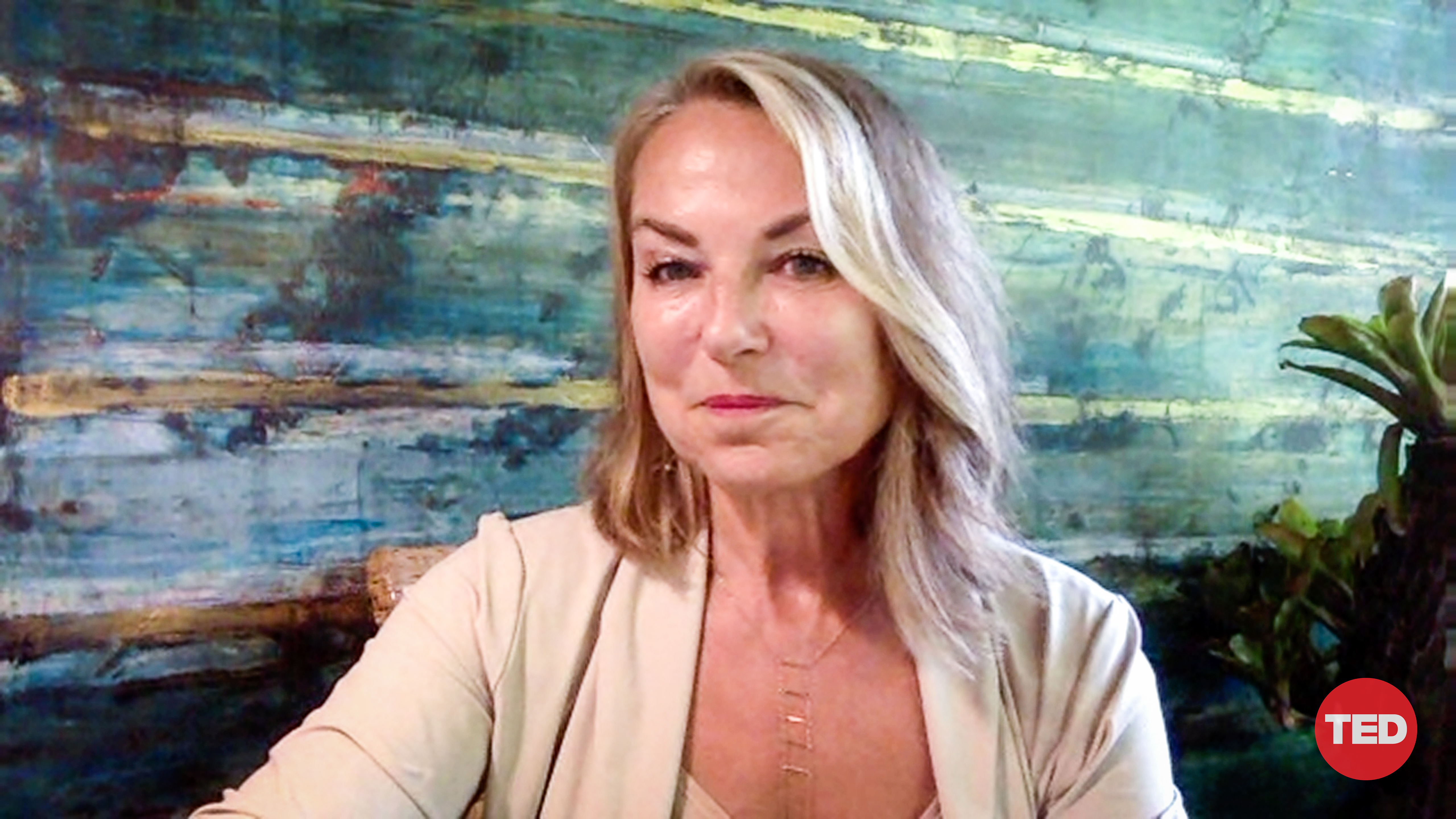
Esther Perel discusses the importance of routines, rituals and boundaries in dealing with pandemic-related stress. She speaks with TED’s head of curation Helen Walters at TED Salon: Impact on March 11, 2021. (Photo courtesy of TED)
Esther Perel, therapist, speaker, consultant
Big question: How do we effectively deal with stress in our daily lives and work a year into the COVID-19 pandemic?
Some answers: The first step is to recognize that stress is multidimensional, says Esther Perel. We wrap up a lot of different feelings into the word “stress”: isolation, grief, anger, economic insecurity, existential anguish, prolonged uncertainty. So we must start by breaking it down into parts, naming and framing the different aspects. A major one, Perel says, is the loss of “eros”: the serendipity, surprise and mystery that lit up our pre-pandemic lives. (People are working hard to recapture eros at home, Perel says, with activities like baking bread and adopting puppies.) Likewise, the boundaries that once demarcated our lives — between work and home, coworker and spouse — have evaporated, leaving us without a sense of groundedness. So what are we to do? Be intentional about creating routines, rituals and boundaries, Perel says, and work to integrate these multiple realities, rather than hiding them. (For instance: don’t stress if your kid walks on camera during a work meeting and says hello. It’s natural!) What’s more, Perel says she’s noticed a shift towards “anti-small talk” at work: things people normally didn’t talk about at the office, like family and mental health, are now regularly entering into conversation. That’s good, she says: we’ll only get through this pandemic with mass mutual reliance, a deep sense of interdependence and social connection — our greatest source of resilience.